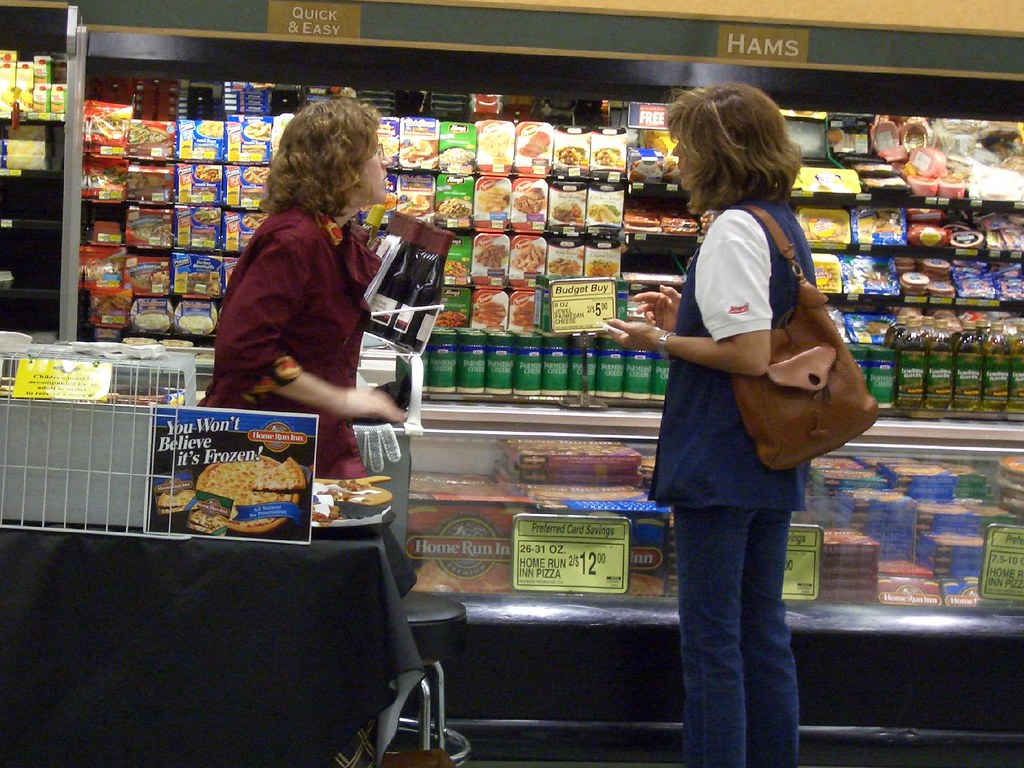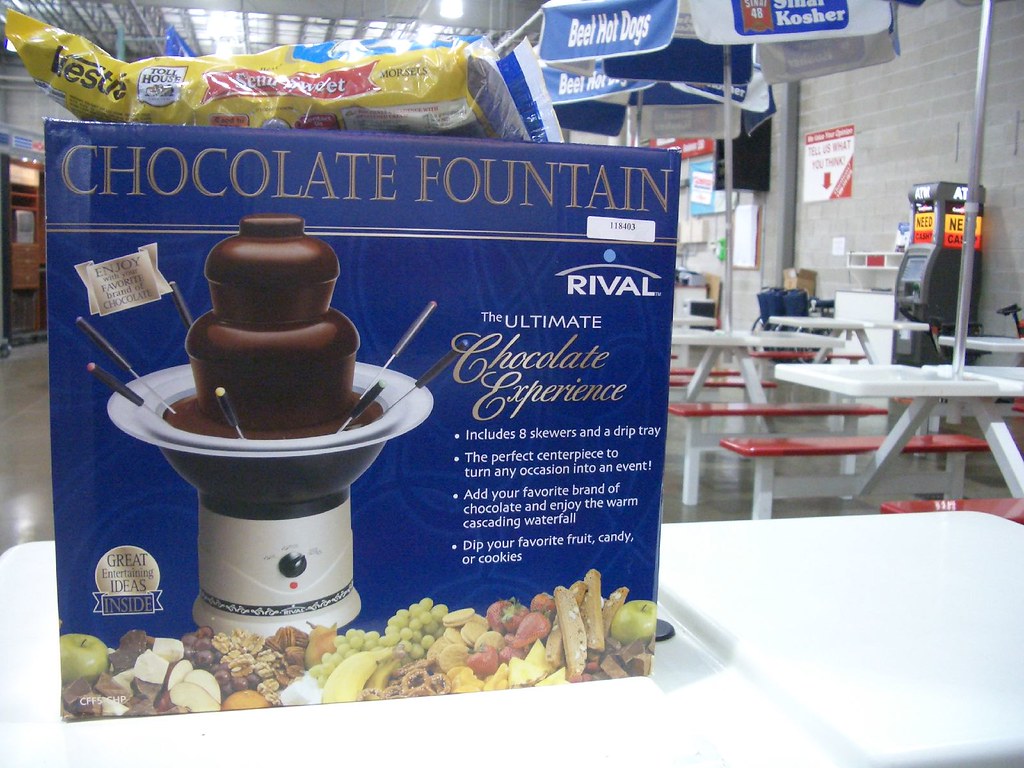 So I'm shopping for groceries, one Monday night at Jewel, when a woman's voice stops me in my tracks. "Would you like to try some fresh hot pizza?" I don't have to think; of course I want to try some fresh hot pizza. As I stood there chewing my tasty sample, I slowly realized that it was unlike other frozen pizzas. So surprisingly delicious, so crisp yet doughy, so sweet yet cheesy, that I started to feel a strange love for this woman.
So I'm shopping for groceries, one Monday night at Jewel, when a woman's voice stops me in my tracks. "Would you like to try some fresh hot pizza?" I don't have to think; of course I want to try some fresh hot pizza. As I stood there chewing my tasty sample, I slowly realized that it was unlike other frozen pizzas. So surprisingly delicious, so crisp yet doughy, so sweet yet cheesy, that I started to feel a strange love for this woman.The pizza was from Home Run Inn, a local Chicago company. And it was good. Really good. But why did I transfer my product-love into person-love? Did this woman own Home Run Inn? Of course not. Did she even work for them? No, she worked for Jewel. Perhaps she made this pizza? Heated it up in her own oven? Rolled the dough with her own two hands? No, she was simply doing her job. She had no connection with the product, none whatsoever, and yet I felt like it was she alone who had brought me one step closer to heaven.
---
This is my theory, and it may sound strange, but here you go. I care more about employees than they care about me, because when we interact in a store, it's my life, but it's their job.
When we talk with employees in a store, we care about them. At least a little. Because whatever is happening in a store is happening "in our life." Shopping is a chore, a leisure activity, a form of entertainment or a contribution to the family, but it's an event that takes place during our everyday lives.
But for store employees, interactions with shoppers are a dime a dozen. Each person asking them a question is just one more distraction, one less item stocked, one less customer checked out. People may blip the radar if they are especially annoying, funny or strange, but for the most part, shoppers come and go and the radar just stays flat.
Yet for better or worse, we endow store employees with an unrequited amount of importance. We want to give them credit when their products are great. More often, we don't want to hurt their feelings when their products are bad. Worst of all, we feel embarassed when they see us buying something awkward. But do these people really care? Of course not. This is just their job.
Example 1: The pizza lady. I loved her product, and so I actually wanted her to see me buying it. I discussed my purchase with her. I picked up the pizza very blatantly, and made sure she saw me putting it in my cart. I wanted her to know my true feelings for "her" pizza. But was she proud? Pleased that her salesmanship helped Home Run Inn? Probably not. I mean, she's just doing her job.

Example 2: The wine lady. She handed me a friendly sample of some sparkling wine. I hated it. It wasn't sweet like she said it would be. It was dry and it burned in my throat. But could I hand the tiny cup back to her, half-drunk and choking? Of course not. I thought this would hurt her feelings. So I carried it three aisles away and tucked it behind some peanut butter. Would she have cared? Probably not in the slightest. It wasn't personal.
Example 3: Something we can all relate to. The cashier, at any store where embarassing-yet-necessary products are sold. I'm talking about family planning products, feminine hygiene products, medicine for strange and unattractive conditions. It's bad enough that we have to ask someone to get them out of the locked case for us. Then, standing in line, we pray that the checkout lady doesn't roll her eyes, snicker, or make some awkward comment. But does she ever? Does she really care about the size of condoms we are buying? Or the fact that our new tongue scraper is recommended for bad breath? Of course not. She's just trying to get through her shift.
Now I'm not saying store employees aren't important. They are people going about their jobs, and tough jobs, I might add. Some might care a lot what their customers think, or giggle once we're out the door. But as shoppers going about our lives, we like to think that we are unique to them - that our tasting and purchasing experiences are original and that we must affect them oh so much. On the contrary, the people who work at the grocery store have probably seen it all. They've had shoppers who loved their samples, and shoppers who hated them. They've encountered nice people, rude people, annoying people and crazy people. They've seen nine customers this week buying hemorrhoid cream.
So maybe I think my in-store interactions are important because they are a chapter in my day, a break from the norm, a story to tell friends later. Perhaps I only talk to one employee, so that person becomes memorable to me. But for the employee, it would take a lot to truly rock her boat. She sees hundreds of me an hour. So the same interaction that has so much importance to me, has almost none to her. Why? It's my life; it's her job.


